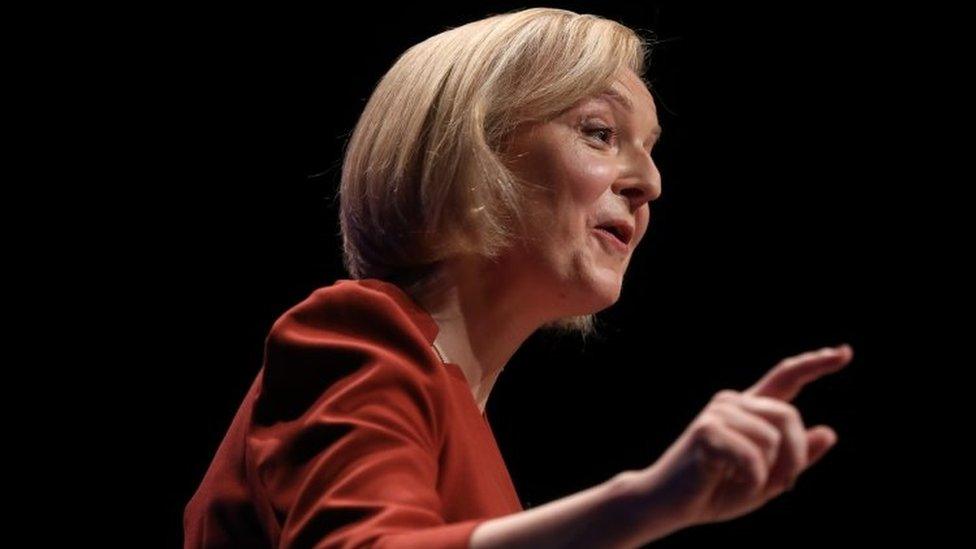Kwasi Kwarteng told to get MPs' support or risk unsettling markets
- Published
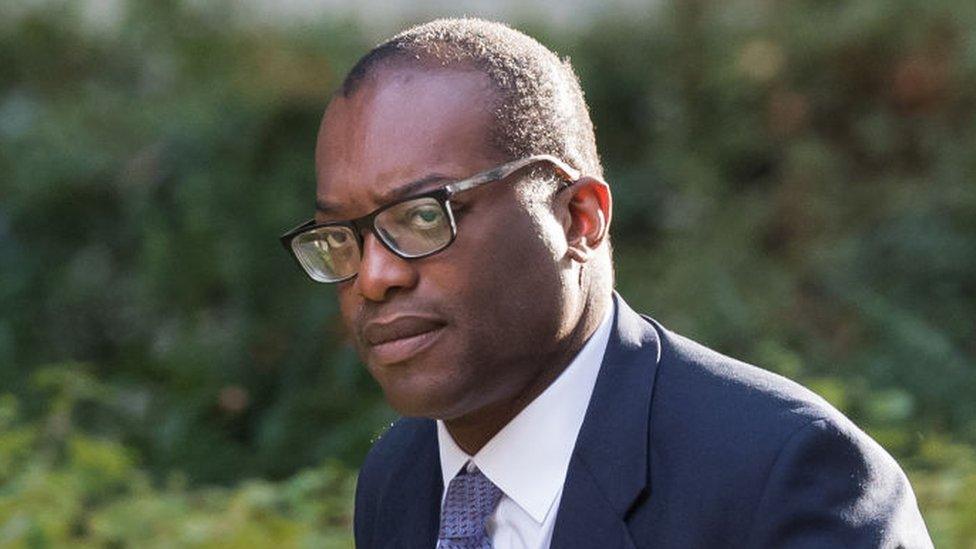
Kwasi Kwarteng has faced vocal opposition to his economic plans from some of his own MPs
Failure to secure support from MPs for the government's economic plan will "unsettle" the financial markets, a senior Conservative has warned.
Mel Stride, who chairs the Commons Treasury Committee, urged the chancellor to reach out to MPs on all sides to get his measures through.
He told the BBC rowing back on tax cuts "has to be on the table".
Kwasi Kwarteng said the government would "canvass opinion widely" ahead of the plan being published on 31 October.
The chancellor's mini-budget on 23 September, which included £45bn of tax cuts funded by borrowing, sparked turmoil on financial markets and prompted the Bank of England to intervene to protect pension funds.
Faced with vocal opposition from some Tories and warnings it would not be able to get the measure through Parliament, the government U-turned on its plan to scrap the top rate of income tax.
Mr Kwarteng initially resisted pressure to spell out how he plans to pay for the tax cuts, saying he would announce this on 23 November.
But on Monday, the chancellor confirmed he would publish his economic plan and independent economic forecasts on 31 October.
Mr Stride welcomed the decision, but urged Mr Kwarteng to seek cross-party support to ensure his plans get through the Commons.
"Any failure to do so will unsettle the markets," he warned the chancellor.
Mr Kwarteng said Mr Stride, who backed Rishi Sunak for the Tory leadership, was "absolutely right", adding: "We will and should canvass opinion widely ahead of the publication of the plan."
Mr Stride later told BBC Radio 4's PM programme that if it was a choice between "getting it wrong" and putting forward a plan which "the markets are just not going to buy" or "rowing back" on tax cuts, the chancellor needed to be "brave".
The chancellor also faced repeated questions over whether his government would increase all benefits in line with prices rather than wages.
Ministers are under pressure to make large savings to get debt under control - but any attempt to bring in real-terms benefit cuts will face fierce opposition from rebel Tory MPs.
Former chief whip Julian Smith, another ex-Sunak supporter and Truss critic, urged the chancellor not to "balance the forthcoming tax cuts on the back of the poorest people in our country".
Mr Kwarteng is due to announce the government's decision on uprating benefits on 31 October.
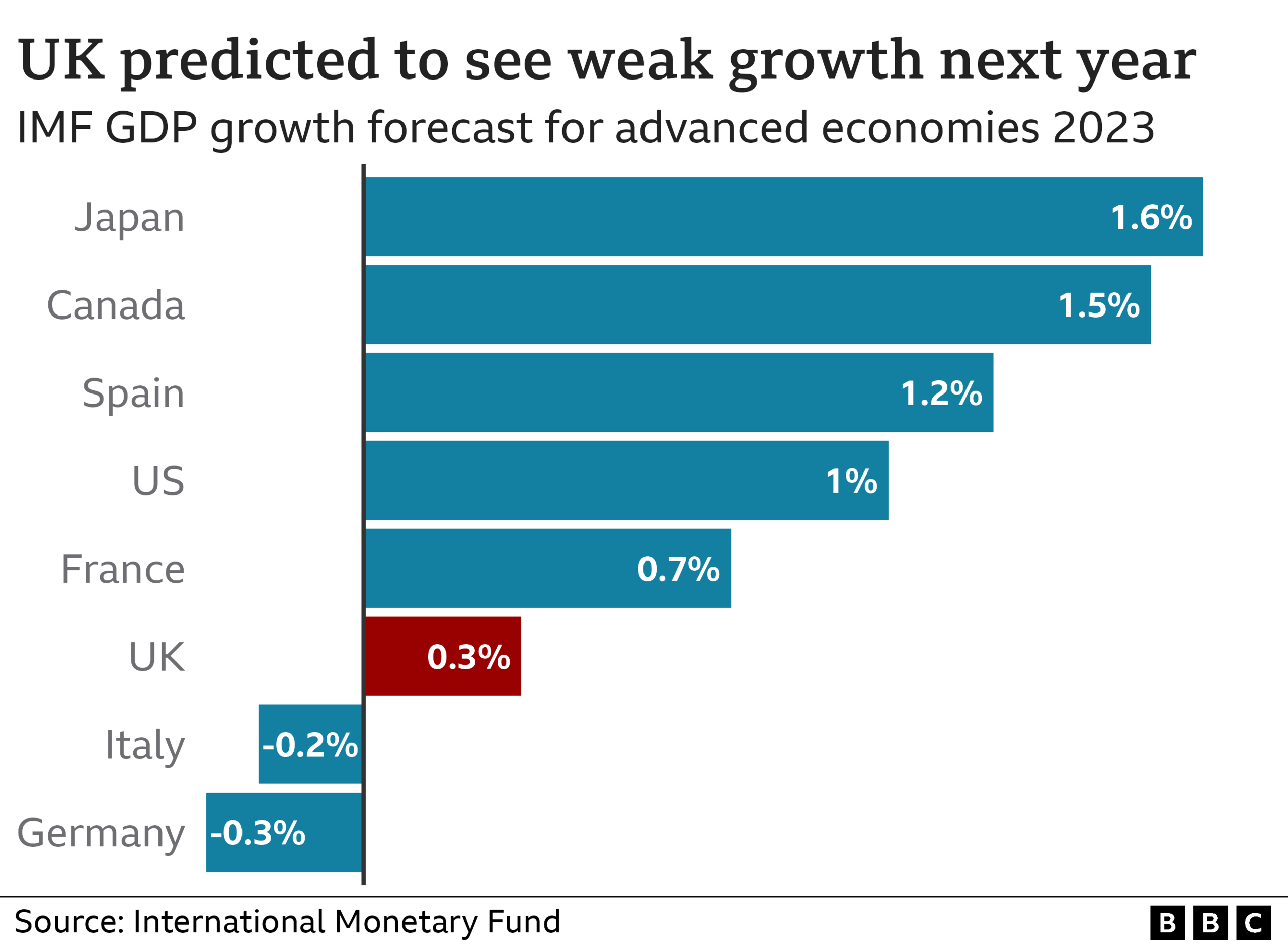
Labour's shadow chancellor Rachel Reeves described the financial turmoil since the mini-budget, including a slump in the value of the pound, increased borrowing costs and a sharp rise in mortgage rates, as a "British crisis made in Downing Street".
She called on Mr Kwarteng to "put aside his pride, do the right thing for our country, end this trickle-down nonsense and reverse the budget".
However, the chancellor accused Labour of being part of the "anti-growth coalition... who want to tax more and want to commit us to low growth".
Earlier, the Bank of England warned of a "material risk" to financial stability as it made its third emergency intervention to try to calm investors.
Meanwhile, the International Monetary Fund, which works to create global financial stability, said the government's plans would lift economic growth in the short-term but warned tax cuts could speed up the pace of price rises.
- Published11 October 2022
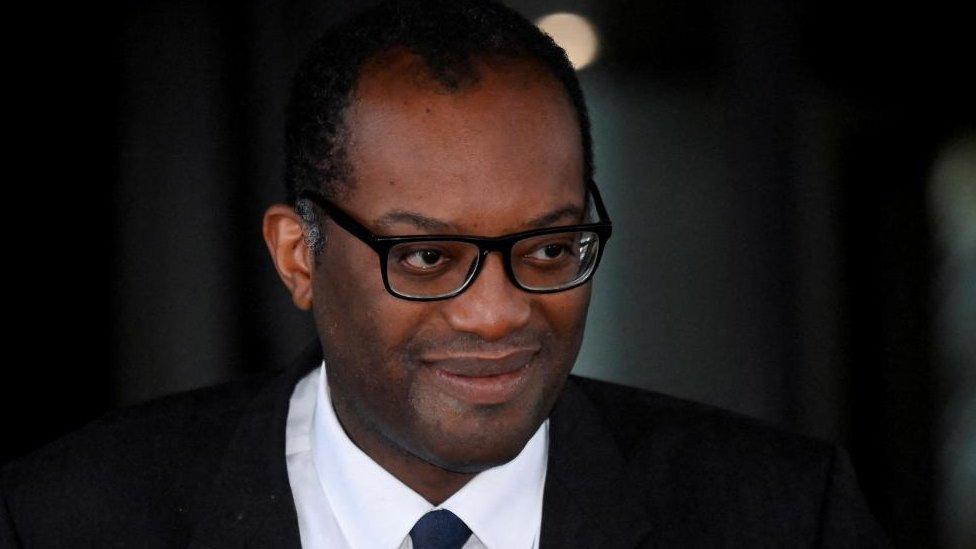
- Published11 October 2022
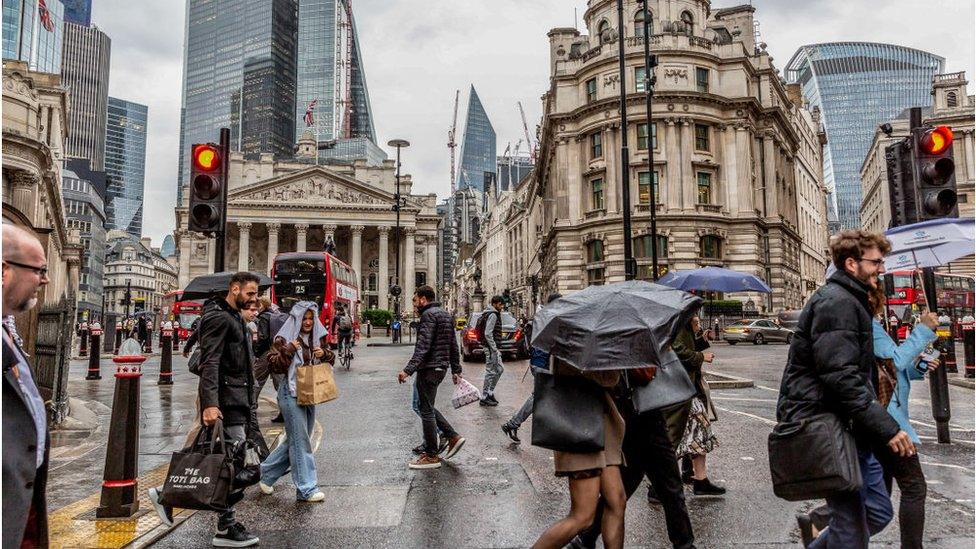
- Published11 October 2022
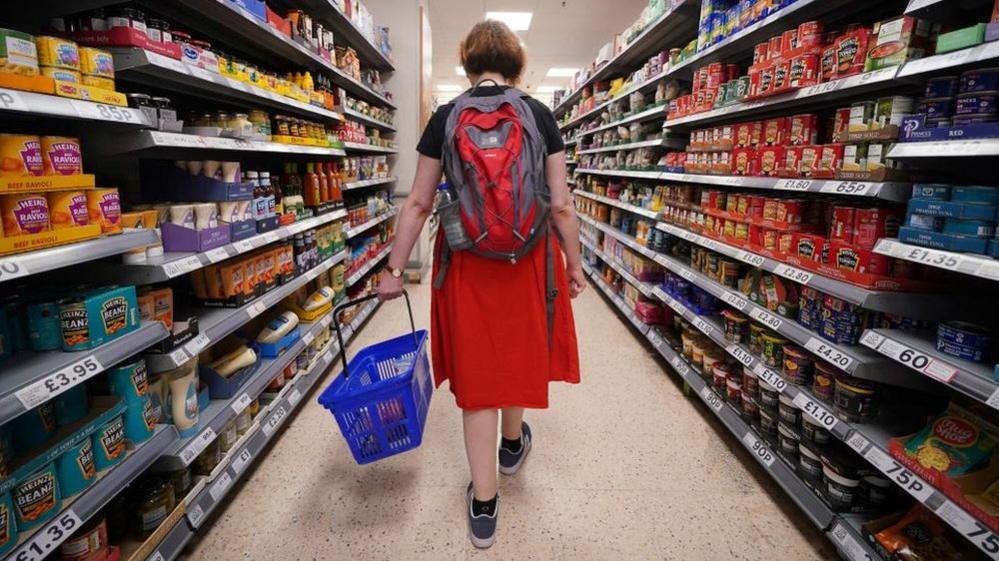
- Published11 October 2022

- Published10 October 2022
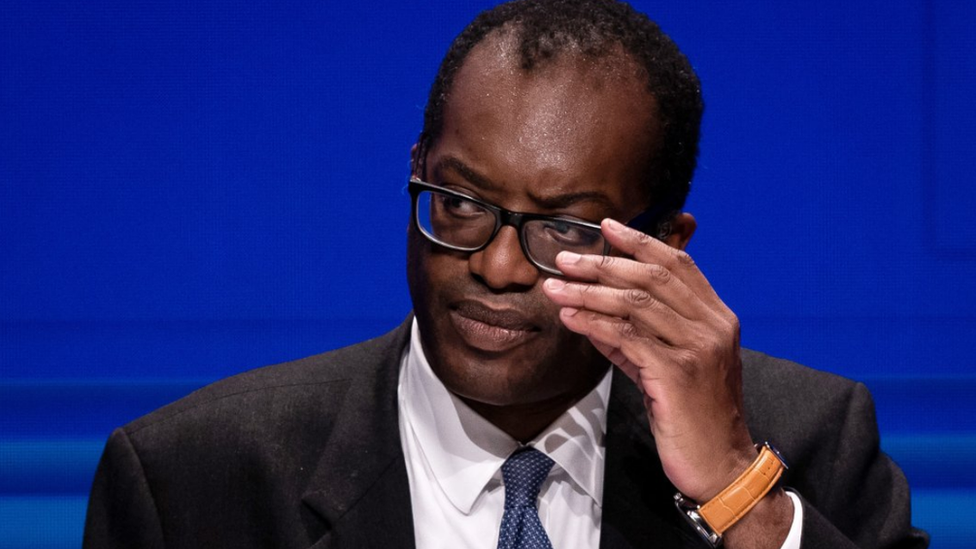
- Published10 October 2022
